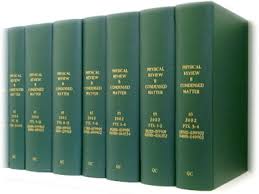Confronting the Crisis in Scientific Publishing: Latency, Licensing and Access
".....research institutions would collectively develop and adopt publication
agreements that do not transfer copyright ownership to publishers, but
instead grant publishers a one-year exclusive period in which to publish
a work. This limited period of exclusivity should enable the publisher
to recoup its costs and a reasonable profit through subscription
revenues, while restoring control of the article copyright to the author
at the end of the exclusivity period. This balanced approach addresses
the needs of both publishers and the scientific community, and would, I
believe, avoid many of the challenges faced by existing open access
models....."
RUL Staff networking & communicating re Academic Libraries, Resources, Scholarly Communication, Research Support, Access, Workplace, & more ...
Friday, October 12, 2012
Looking back after 20 years
This is a really interesting (short) article about the development of journals - do try and read it.
"It has been approximately 20 years since distributing scholarly journals digitally became feasible. This
article discusses the broad implications of the transition to digital distributed scholarship from a
historical perspective and focuses on the development of open access (OA) and the various models for
funding OA in the context of the roles scholarly journals play in scientific communities.
..... It took hundreds of years to develop a finely honed paper journal system. In a mere 20 years, digitally
distributed journals are still evolving and have a long way to go in working out the format, conventions,
and economics that will allow the use of this new media to be as effective and as efficient as the paper
media that they are replacing...."

"It has been approximately 20 years since distributing scholarly journals digitally became feasible. This
article discusses the broad implications of the transition to digital distributed scholarship from a
historical perspective and focuses on the development of open access (OA) and the various models for
funding OA in the context of the roles scholarly journals play in scientific communities.
..... It took hundreds of years to develop a finely honed paper journal system. In a mere 20 years, digitally
distributed journals are still evolving and have a long way to go in working out the format, conventions,
and economics that will allow the use of this new media to be as effective and as efficient as the paper
media that they are replacing...."
Wednesday, October 10, 2012
The entire print collection of the Library of Congress could fit on five to 10 discs!
Case Western Reserve University researchers have developed technology
aimed at making an optical disc that holds 1 to 2 terabytes of data --
the equivalent of 1,000 to 2,000 copies of Encyclopedia Britannica
Subscribe to:
Comments (Atom)